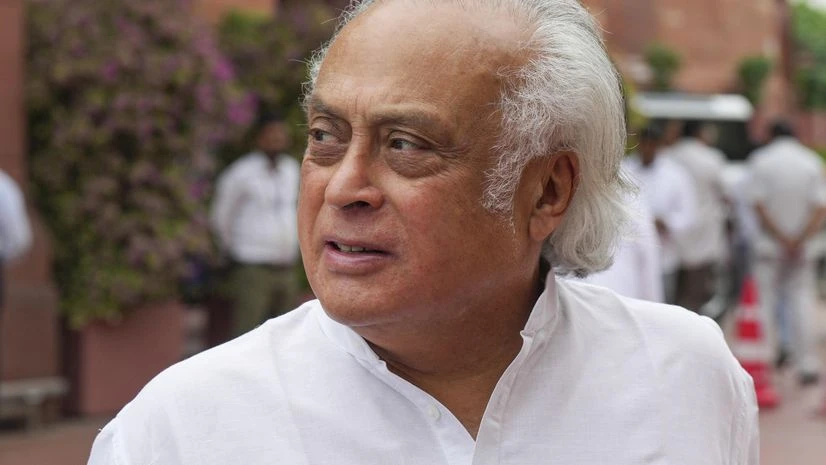Asserting that the last 10 years have seen "highly detrimental economic trends", the Congress on Sunday said the monsoon has receded but at least "three dark clouds" of languishing private sector investment, stagnating manufacturing and decline in real wages and productivity for labourers, still loom over the Indian economy.
Congress general secretary in-charge communications Jairam Ramesh said bombastic claims on the economy are being made by Prime Minister Narendra Modi and his drumbeaters but what these claims conceal are the choke points that will strangulate growth in the years to come if not taken seriously now, in a spirit of humility.
"The monsoon has receded. But new evidence has shown that at least three dark clouds still loom over the Indian economy," Ramesh said in a statement.
"First, after a brief surge in private sector investment during 2022-23 on the back of the COVID-19 recovery, investment has returned to an unsteady path," he said.
New project announcements by the private sector fell by 21 per cent between FY23 and FY24, he pointed out.
"This reflects a lack of investor confidence in India's consumer markets, and the uncertain investment climate generated by the Government's inconsistent policy making and Raid Raj," he said.
In this context, rather than grow their businesses, companies are using profits to reduce debt burdens, he claimed.
The monsoon has receded. But new evidence has shown that at least three dark clouds still loom over the Indian economy. Our statement on the key challenges threatening to disrupt India’s growth potential pic.twitter.com/qmbq4aBIFF
— Jairam Ramesh (@Jairam_Ramesh) October 6, 2024
"We are witnessing a growing financialisation of the Indian economy, with India Inc - perhaps taking its cue from the government - focusing on stock market valuations rather than top-line revenue growth," Ramesh said.
This bodes poorly for the medium- and long-term future of the Indian economy, as the growth engine of the economy -? private sector investment - continues to languish, he said.
"Second, ten years after the Government's flagship Make in India scheme was launched, India's manufacturing is stagnating. As share of GDP, manufacturing is the same as it was ten years ago," the Congress leader said.
Ramesh pointed out that as a share of total employment, manufacturing has marginally declined.
India's share in global merchandise exports has also largely stagnated, and exports are falling as a share of India's GDP, he said.
"In fact, growth in India's share of global exports grew much faster in the 2005-15 period, largely corresponding to Dr. Manmohan Singh's tenure as Prime Minister. In labour-intensive sectors like garments, exports have fallen from $15 billion in 2013-14 to $14.5 billion in 2023-2024," he said.
This shrinking of manufacturing is largely attributable to the PM's inexplicable trade policy - where it disincentivizes participation in global value chains (GVCs) through high tariffs while silently permitting Chinese dumping of mass imports, Ramesh alleged.
"Third, the latest Annual Survey of Industries (ASI) for 2022-2023 has revealed a decline in real wages and productivity for India's labourers.
The growth in GVA per worker (a measure of labour productivity) slowed from 6.6 per cent in 2014-15 to 0.6 per cent by 2018-19," he said.
After Covid era statistical irregularity, worker productivity contracted in FY23 again, Ramesh said, adding that this decrease in labour productivity has impacted real wage growth, especially amidst rising inflation.
As real wages stagnate, consumption will remain weak - resulting in the low investment that has been a consistent restraint on India's growth, he said.
"These are merely the issues that have surfaced in the past few weeks but the last ten years have seen other highly detrimental economic trends, including rising oligopolisation, mass unemployment, and high inflation," he said.
"Bombastic claims on the economy are being made by the non-biological PM and his drumbeaters. But what these claims conceal are the choke points that will strangulate growth in the years to come if not taken seriously now, in a spirit of humility," Ramesh said in his statement.
(Only the headline and picture of this report may have been reworked by the Business Standard staff; the rest of the content is auto-generated from a syndicated feed.)

)